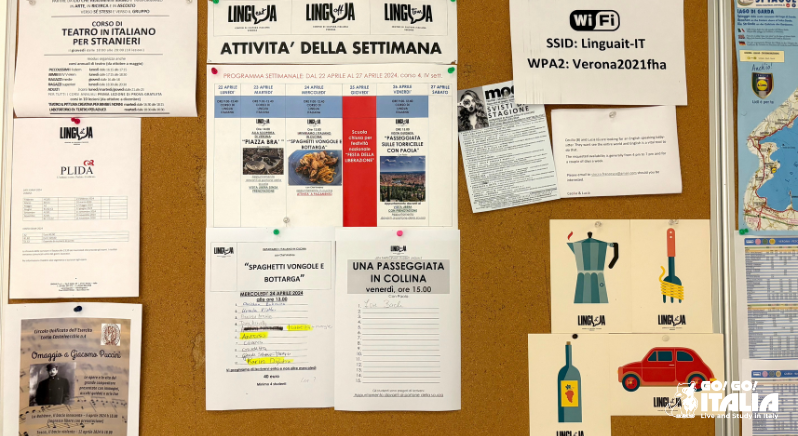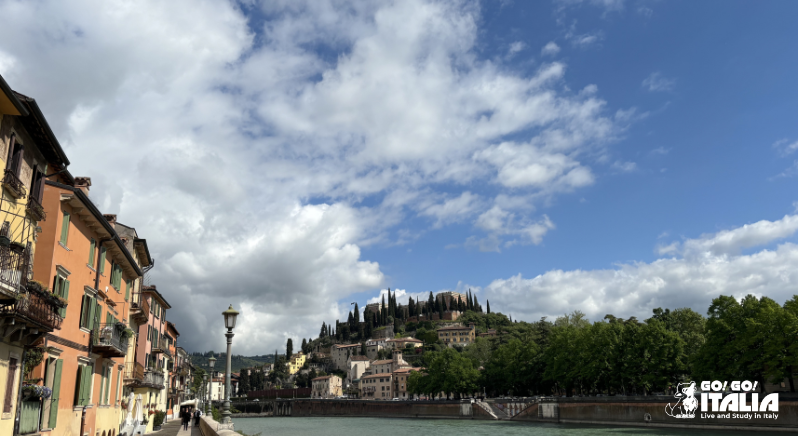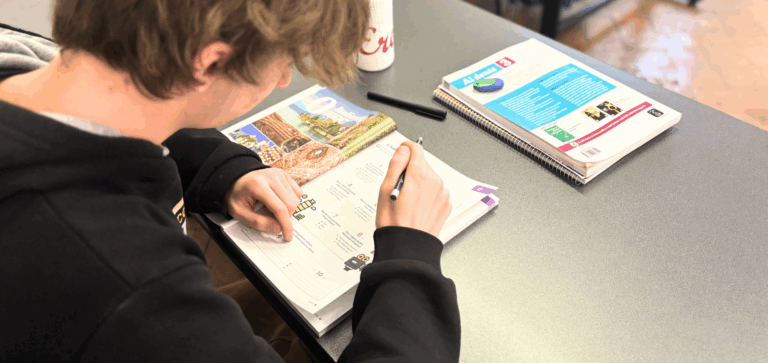Are you thinking of studying Italian in Italy but don’t know where to start? We got you covered with this guide about Italian language courses structure and possibilities.
Applications are generally divided into two categories: short-term courses (up to 90 days) and long-term courses (over 90 days and up to one year), which require a student visa.

Short-term Italian language courses (up to 90 days)
Short-term programs are ideal for those looking to enjoy Italy while gaining basic language skills or cultural insights. The process is simple, especially for passport holders from countries that don’t require a tourist visa to enter Italy. In most cases, you can stay and study for up to 90 consecutive days without needing additional paperwork. Check our visa calculator to find out if you need to a apply for a tourist visa.
If you don’t need a tourist visa to enter Italy, applying for an Italian language course is simple: just complete a short online form and ensure your passport is valid for at least three months beyond your intended departure date.
Application deadlines for short-term Italian language courses without a visa are typically a few weeks before the start date. However, due to limited availability, it’s smart to secure your spot early by paying a deposit—usually deducted from your total tuition—at least a couple of months in advance. The remaining tuition is typically paid a few weeks before your arrival in Italy.
If you need to apply for a tourist visa, you can follow the same procedures outlined below for long-term courses.
Long-term Italian language courses (over 90 Days)
For programs that extend beyond 90 days, a student visa is required. The process is more detailed and involves several steps. According to Italian law, student visa applicants must enroll in a course that includes at least 20 hours of classes per week.
To begin, you’ll need to pay a deposit of the total tuition to reserve your place. This varies depending on the school— in some cases, the deposit may be around €200, while in others it could be approximately 20–25% of the total tuition fee.
The remaining balance is typically due around one-two months before the program starts. Importantly, you must pay the full tuition in order to receive the Enrollment Certificate, which is required for your visa application.
You’ll also need to demonstrate financial stability. This means showing that you can support yourself during your stay—usually about €1,000 for each month of studies in Italy. If you don’t have sufficient funds, you can list your parents or another relative as financial sponsors and provide documentation of their income and savings.
Student visa application deadlines are generally a couple of months before your course begins. However, we strongly encourage applying as early as possible, as spots are limited and visa processing times can vary.

Type of Italian language courses
Language schools in Italy offer a wide range of course options to suit different learning styles and schedules. You can choose from private lessons, standard group classes (typically with 10–12 students), or very small group sessions (2–3 students). Course intensity can also vary, starting from 15 hours per week up to 20, 30, or more.
Italian classes are typically held in the mornings, with activities scheduled in the afternoons. However, this may vary depending on the school and the number of enrolled students.
In addition to language instruction, many schools offer a variety of engaging extracurricular activities to enrich your experience. These can include city tours, film screenings, cooking classes, and themed workshops on topics such as business Italian, fine arts, or opera appreciation. Some schools also offer more specialized programs, like Italian combined with university preparation.
The type of activities available often depends on the school’s location. For instance, a school in Taormina might include beach outings or scuba diving, while one in Verona may feature courses on opera history.
Ready to start planning your Italian course, or just have a few questions? Contact us!



